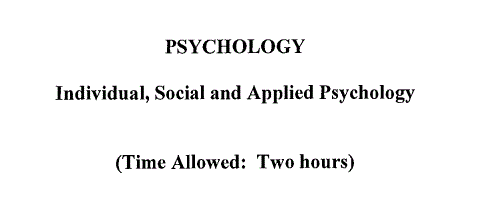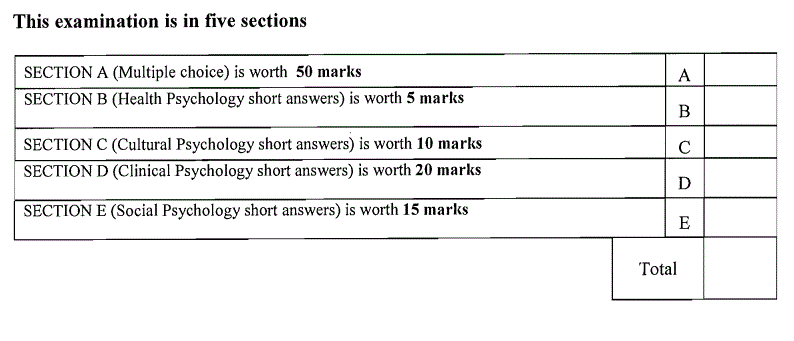
|
Archive - Exams: Preparing and Revising |
In the exam
Managing your time
Check the number of marks allocated for each question. This will give you an idea of how much information you need to provide and how much time you should spend on each question.
If you’re spending 30 minutes on a question worth 5% and only have 10 minutes left for a question worth 20% then something is wrong.
You usually get most marks at the begninning of an answer, so going over your time limit will prevent you getting the most marks on your next answer.
Don't spend too long perfecting one answer at the expense of others.
If you are pushed for time just give the answers required, don’t rewrite the question. It's usually ok to write your answer as a series of bullet points rather than perfectly formed paragraphs.
Exercise
Use the information below to answer the multiple choice questions. 

Overcoming problems in the exam
Most people feel a little anxious and stressed about exams. A little stress can be a good thing and can lead to improved performance. However, when stress and anxiety become overwhelming, performance can be detrimentally affected.
Common problems students encounter in the exam room include panic attacks and memory blocks. The best prevention is good exam preparation, but if these problems do arise during the exams, here are some suggestions for overcoming them.
Memory blocks
If you do go blank, take some deep breaths and try to relax. Try to recall the information again. If you still can’t, move on to the next question. Sometimes answering another question and relaxing into the exam will trigger your memory.
If you’re really stuck, look at the keywords and jot these down on some scrap paper. Spend a couple of minutes free-writing around these words. Free-writing involves writing continuously for a few minutes about whatever comes into your head. It will help you relax and start the words flowing.
Writer’s cramp
If you’re not used to writing for 2-3 hours it is a good idea to make sure you are writing as part of your revision.
Have quick writing breaks during the exam. Briefly put your pen down, do a couple of gentle wrist rotations in each direction, and open and close your hand. If your hand cramps up, try dangling it limply by your side.
Anxiety
If you’re prone to anxiety, learn and practise some strategies for dealing with anxiety before the exam. If you're finding anxiety overwhelming you might want to talk to someone at the Student Counselling Services or access some of their online resources.
Remember the acronym:
Click the picture to enlarge.





